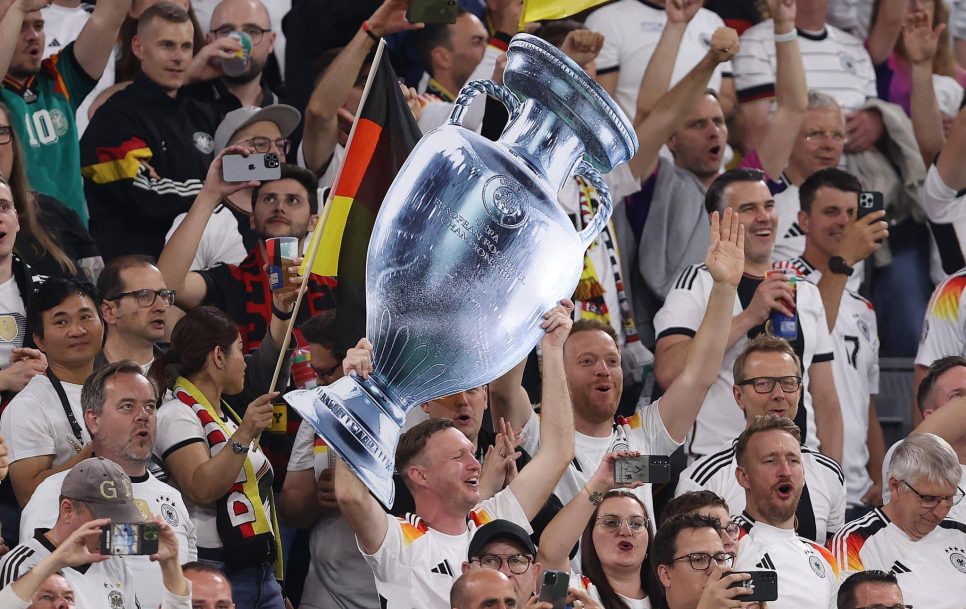Why did UEFA throw the third-place match into the trash decades ago?
As we gear up for the 2024 UEFA European Football Championship final showdown between Spain and England this Sunday, spare a thought for France and the Netherlands. They are the ones heading home after a gut-wrenching semifinal defeat, as there hasn’t been a third-place match in the EUROs for 44 years. But why did UEFA decide to scrap it in the first place?
When the European Championship first kicked off in 1960, the battle for 3rd and 4th place was a thing. Czechoslovakia claimed the inaugural bronze medal by defeating France 2-0, with goals from Vlastimil Bubník and Ladislav Pavlovič.
This tradition continued until 1980, when UEFA decided it was all a bit pointless. The final straw came during EURO 1980 in Italy, where only 24,652 people turned up to see the third-place match between Czechoslovakia and Italy.
You read it right: the host nation itself, which drew crowds of 40,000-60,000 in previous games, could not attract people to the stands for the third-place match. As the TV ratings for the game were also dismal, UEFA decided to toss the match and bronze medal into the dustbin of history.
European Championship bronze medalists:
- 1960: Czechoslovakia defeated France 2-0
- 1964: Hungary defeated Denmark 3-1 after extra time
- 1968: England defeated the Soviet Union 2-0
- 1972: Belgium defeated Hungary 2-1
- 1976: Netherlands defeated Yugoslavia 3-2 after extra time
- 1980: Czechoslovakia defeated Italy 9-8 on penalties after a 1-1 draw
Different story at World Cups
While it was ditched in the EUROs, third-place matches are still alive and kicking at other football tournaments like the Copa America, African Cup of Nations, Women’s World Cup, and of course, the Men’s World Cup.
At the 2022 World Cup in Qatar, for instance, nearly 45,000 fans packed the Khalifa International Stadium to watch Croatia battle Morocco for third place and win – proof that the match still holds sway among supporters.
This has been the case during every World Cup. For comparison, in 1978 – two years before the infamous EURO that led UEFA to drop the third-place match – the World Cup bronze match was attended by 69,659 people, just 2,000 fewer than the final held the following day. Thus, the existence of the third-place match has never really been questioned at FIFA congresses, although its merits and necessity have been debated among fans and in the media.
Benefits of the bronze
But why keep it at World Cups? Well, it does give players a shot at something tangible amidst the tournament’s prestige. After all, when we talk about the Spanish national team, we refer to them as world champions, not just three-time European champions. Because the World Cup is what actually matters.
The fact that fans around the world are also engaged in it helps the case. And it matters for the teams as well, as the third-place team will receive more points and money than the fourth-place team. In 2022, Croatia pocketed a cool 27 million euros for their bronze, two million more than Morocco.
In the EUROs, points and prize money are split evenly between the losing semifinalists.
Tradition is mixed
Some football enthusiasts have also emphasized the long tradition of the third-place match in the World Cup, but that argument rests on somewhat shaky ground, as such a fixture did not exist in 1930 or 1950. In those tournaments, the medalists – including champions – were determined through group-stage performances.
But no matter how it’s done, one should always give out bronze medals. Even if, at times, it is done in a less-than-perfect manner, as was evident in the 1993 Gold Cup, where Costa Rica and Jamaica played to a 1-1 draw in the third-place match and both teams were awarded medals.
For countries like Germany, Brazil, France, and Italy – all former world champions – finishing third in a World Cup may not carry the same weight as their ultimate triumphs. Yet, for nations such as the United States, Sweden, Austria, Chile, Portugal, Poland, Sweden, Croatia, Turkey, the Netherlands, and Belgium, securing a bronze medal is a significant achievement, marking their place in football history.







